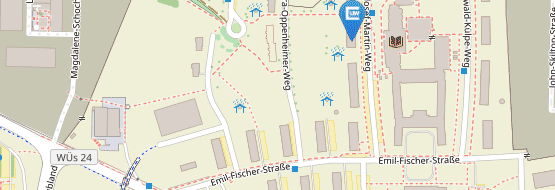Digital Holocaust Remembrance (2021)
How have you gained your knowledge of the Holocaust? If you are German, you have probably listened to the testimonies of contemporary witnesses at your school, you may have participated in commemoration events in your town or visited memorials for concentration camps, museums, or exhibitions. But how can this be continued amid a global pandemic, when memorials and museums have to shut down and events have to be cancelled due to contact restrictions? How can we remember the atrocities of the Holocaust in times of Covid-19 and what role does social media play in this context?
The 30-minute podcast "(Virtual) Future of Holocaust Remembrance" addresses these questions. First, an attempt is made to outline the topic and to classify it in terms of cultural studies: When and where does "virtual remembering" begin? Which virtual projects already exist? In the second part, the media scholar Dr. Tobias Erbrecht-Hartmann, Hebrew University of Jerusalem, will be our guest and talk about how remembering the Shoah has changed since the Covid-19-pandemic. In the third part, Dr. Christian Höschler, Deputy Head of Education and Research at the Arolsen Archives, presents the digital projects of the Arolsen Archives. They are one of the pioneering institutions in Germany when it comes to the digitization of remembrance culture.

Media Installation at the French embassy building in Berlin dedicated to“#everynamecounts”.
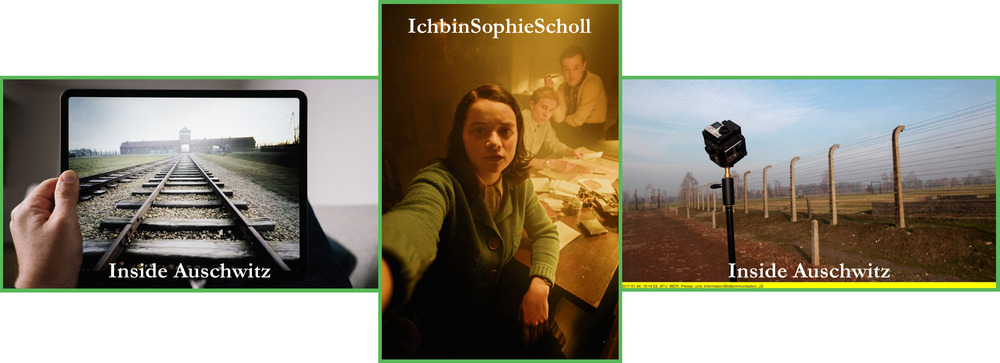
Inside Auschwitz
Using the 360-degree VR walk "Inside Auschwitz" on a tablet computer.
IchbinSophieScholl
Actress Luna Wedler, as Sophie Scholl, takes viewers into the life of the German resistance fighter via an Instagram account.
Take a look onInstagram.
Inside Auschwitz
A 360-degree camera capturing footage from the former Auschwitz concentration camp for the VR walk "Inside Auschwitz".
Take a look onYoutube.
(Virtual) Future of Holocaust Remembrance
Dr. Tobias Ebbrecht-Hartmann
Tobias Ebbrecht-Hartmann is a Senior Lecturer at the DAAD Center for German Studies and the Department of Communication and Journalism. His interest is in filmic and digital media memory of the Holocaust, and German visual and cultural history with a special focus on commemorating the Holocaust and other experiences of collective violence, as well as on the history and memory of the GDR.
He holds his PhD from the Free University in Berlin where he also graduated in Film Studies, New German Literature and Political Science.
Ebbrecht-Hartmann is author of three German monographs on cinematic narration of the Holocaust, German-Israeli film history and the filmmaker Romuald Karmakar; co-editor of "Docudrama on European Television: a Selective Survey" (2016) and three German anthologies on emotions and film perception, East German documentary cinema and contemporary German cinema; and contributed numerously to journals, collections and online-publications in German, English, French and Hebrew.
Dr. Christian Höschler
Christian Höschler studied History, English and Educational Sciences at the LMU Munich from 2007 to 2017. His doctoral dissertation is entitled "The IRO Children's Village Bad Aibling. A Refuge in the American Zone of Germany, 1948-1951". Since 2017, he has been deputy head of the Research and Education Department of the Arolsen Archives in Bad Arolsen.
His main areas of interest are the history of Nazi persecution, displaced persons after 1945 and historical-political educational work.
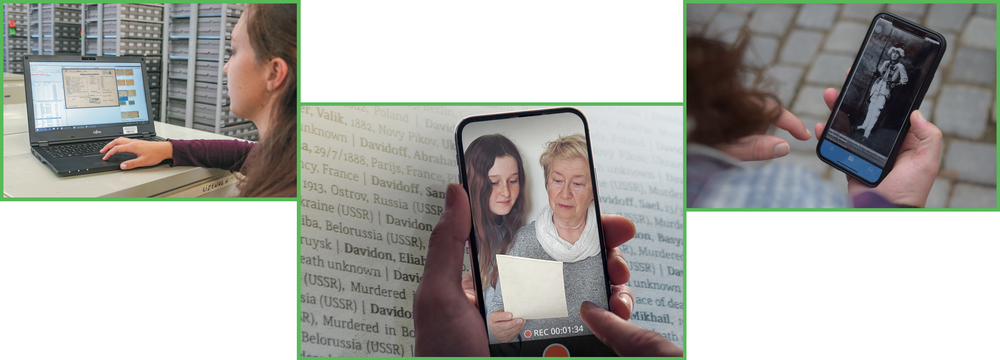
A woman in the collection of the Arolsen Archives clicks through the archive's catalog, which is more than 80% digitized.
Two people participate in Yad Vashem’s worldwide virtual name-reading campaign to mark Holocaust Remembrance Day 2020.
A young woman discovering the biographies of young Holocaust victims from Dinkelsbühl, Bavaria, using an audio guide developed by teenagers.
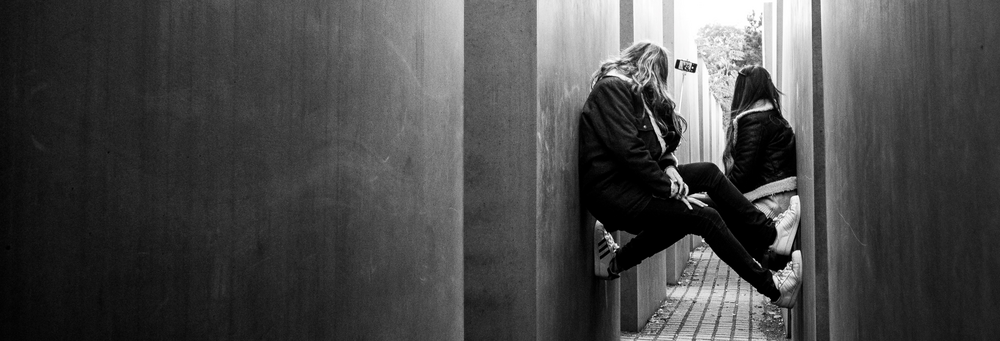
Two teenage girls taking a picture at the Berlin Holocaust memorial.
Is this crossing “ethical red lines”?
Here you can find more projects that deal with digital remembering.
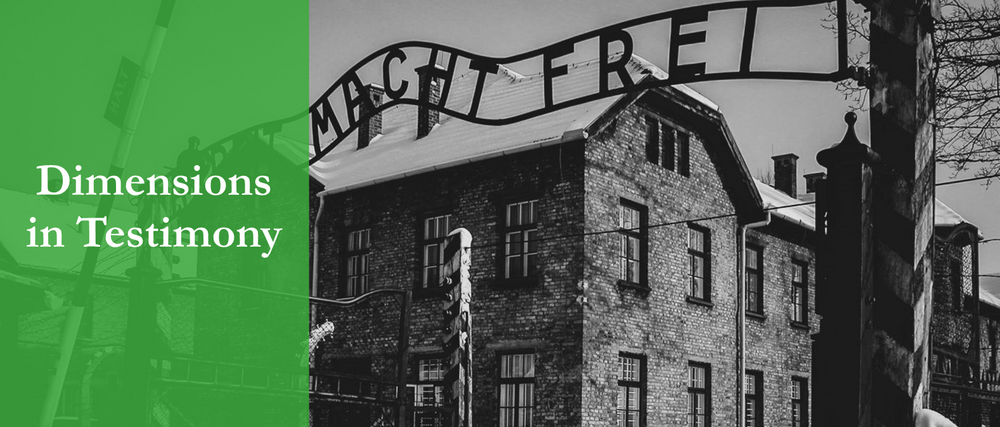
The usage of digital media in Holocaust education has, in fact, not been a product of the pandemic. A ground-breaking example is the project “Dimensions in Testimony,” which premiered in 2015. It was initiated by the Survivors of the Shoah Visual History Foundation. A hologram and computer software simulate a conversation with a survivor using thousands of pre-recorded videos.
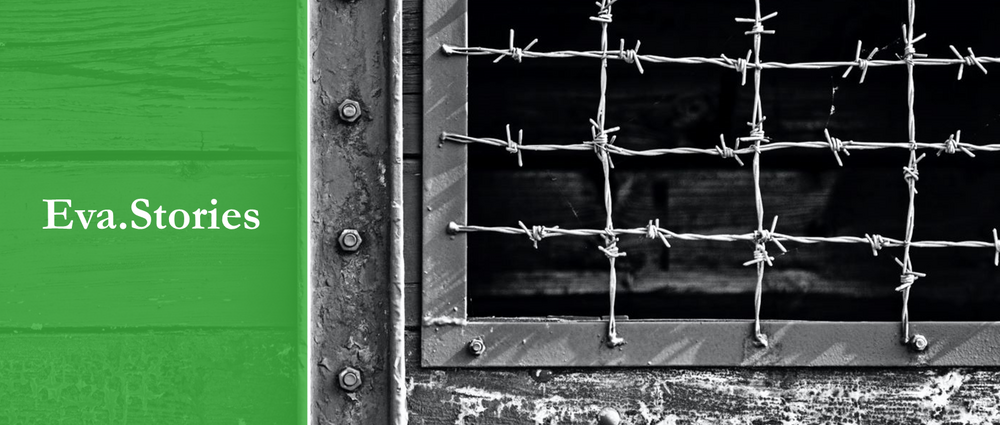
According to Dr. Ebbrecht-Hartmann, “Eva.Stories” was the first step towards really using the aesthetics and the logics of social media and especially of a visual platform like Instagram and also this kind of fragmented structure of the stories on Instagram. The 13-year-old protagonist Eva Heymann from Hungary leads the viewers through her everyday life as a Jew under National Socialism via Instagram posts and stories. The Israeli production was released in 2019 on Instagram.
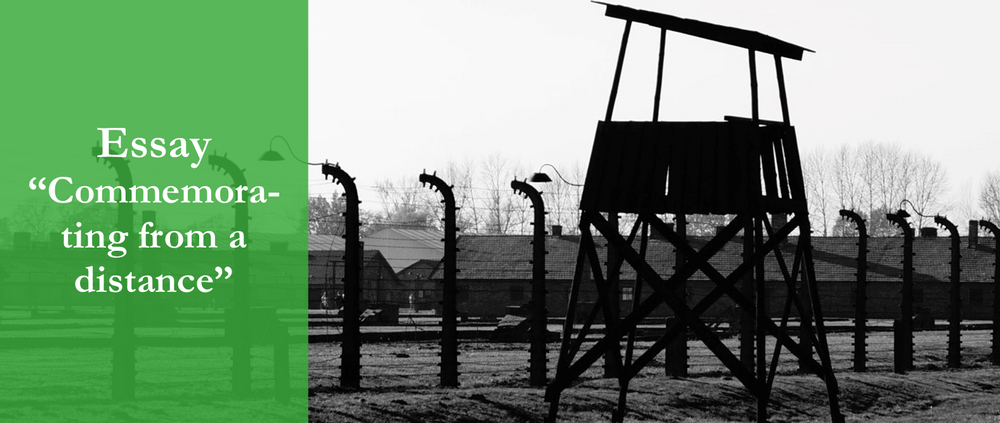
Commemorating from a distance: the digital transformation of Holocaust memory in times of COVID-19
In this essay, Dr. Tobias Ebbrecht-Hartmann, one of the two guests on the podcast and a film and media scholar at the Hebrew University of Jerusalem, explores Virtual Memory during the Covid 19 pandemic.


